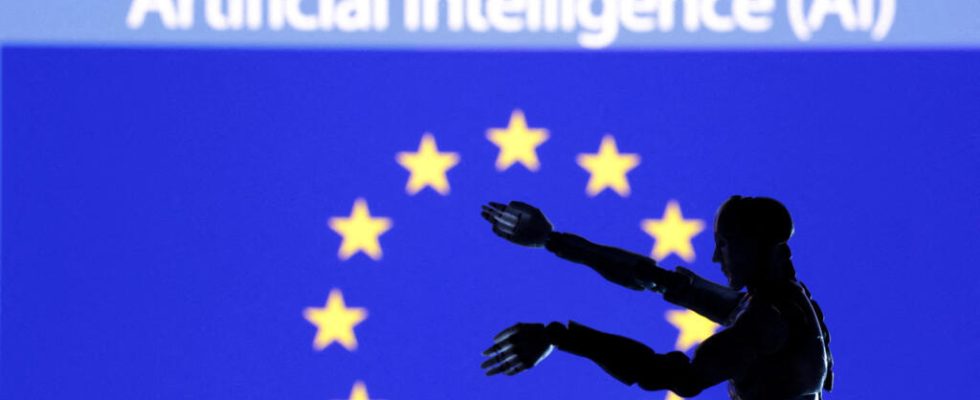The member states of the European Union (EU) approved this Friday, February 2, a first law to regulate artificial intelligence (AI) which sparked intense negotiations until the end, announced the Belgian presidency of the Council of Europe. the EU.
3 mins
The ambassadors of the Twenty-Seven have “ unanimously confirmed » this Friday the political agreement reached last December between Member States and MEPs, indicated the Belgian Presidency of the Council of the EU on X (formerly Twitter), in unison with several diplomatic sources. Some countries, including France and Germany, had raised points of concern, which were taken into account before the text was finalized, according to diplomats. “ This “AI Act” is a milestone, establishing the first rules on the planet aimed atartificial intelligenceto make it more secure and respectful of EU fundamental rights », affirmed the Belgian presidency.
European Commissioner Thierry Breton, in charge of the file, welcomed a regulation “ historic, a world first “. “ The AI law has unleashed passions, and rightly so! Today, Member States approved the December political agreement, recognizing the perfect balance found by negotiators between innovation and security “, did he declare.
The European Commission presented its “AI Act” project in April 2021. But the appearance at the end of 2022 of ChatGPT, from the Californian start-up OpenAI, capable of writing dissertations, poems or translations in a few seconds, gave a new dimension and caused the acceleration of discussions. This system, like those capable of creating sounds or images, revealed to the general public the immense potential of AI. But also certain risks: the dissemination on social networks of false photographs, larger than life, has alerted to the danger of manipulation of opinion.
Read alsoOpenAI, parent company of ChatGPT, wants to fight against online disinformation
More flexible legislation on start-ups at the request of Paris and Berlin
Paris and Berlin were keen that European legislation protect start-ups specializing in artificial intelligence, so as not to prevent the emergence of future “ European champions » of the sector. Tuesday in Berlin, German Digital Minister Volker Wissing was pleased to have “ were able to secure improvements for small and medium-sized businesses, avoid disproportionate requirements and ensure we remained internationally competitive “.
On generative AI, rules will be imposed on everyone to ensure the quality of the data used in the development of the algorithms and to verify that they do not violate copyright legislation. Developers will also have to ensure that the sounds, images and texts produced are clearly identified as artificial.
Reinforced constraints will apply only to the most powerful systems. Systems deemed to be “high risk” – in sensitive areas such as critical infrastructure, education, human resources, policing, etc. – will be subject to a series of obligations such as providing for human control over the machine, the establishment of technical documentation, or even the implementation of a risk management system.
Read alsoSemiconductors: demand strengthened by the rush towards artificial intelligence
